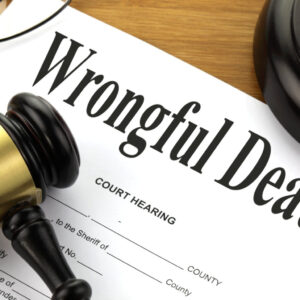A car accident can turn your life upside down. Beyond the physical pain and emotional distress, the mountain of medical bills can feel overwhelming. Dealing with insurance companies can add another layer of frustration. But don’t despair. You can fight for fair compensation and avoid being buried under debt. This guide will walk you through the process.
Understanding Car Accident Medical Bills After a Crash
After an accident, understanding your insurance coverage is vital. Many states operate under “fault” or “no-fault” systems. In a fault state, the at-fault driver’s insurance is primarily responsible for covering your medical expenses. In no-fault states (like Michigan and Florida), your own insurance typically pays for initial medical costs, regardless of who caused the accident. This is often called Personal Injury Protection (PIP) or Med-Pay coverage.
Med-Pay coverage is an add-on to your auto insurance policy that pays for reasonable medical expenses, regardless of fault, up to a specified limit (e.g., $5,000, $10,000). If you don’t have health insurance, or even if you do, Med-Pay can be invaluable for covering deductibles, co-pays, and other out-of-pocket expenses.
Another important coverage to understand is Uninsured/Underinsured Motorist (UM/UIM) coverage. This protects you if you’re hit by a driver who doesn’t have insurance or doesn’t have enough insurance to cover your damages.
Documenting Your Medical Expenses After a Car Accident
Meticulous documentation is your best weapon. Keep detailed records of everything related to your medical treatment. This includes:
- Medical bills: Every invoice from hospitals, doctors, physical therapists, and other providers.
- Payment records: Canceled checks, credit card statements, or receipts showing payments you’ve made.
- Treatment records: Doctor’s notes, hospital discharge summaries, physical therapy reports, and any other documentation outlining your injuries and treatment plan.
- Prescription records: Keep track of all medications prescribed, including dosages and costs.
- Lost wage documentation: If your injuries prevent you from working, gather pay stubs and a letter from your employer detailing your lost income.
- Travel expenses: Document mileage for trips to medical appointments.
Filing a Claim with Your Insurance Company for Car Accident Injuries
Begin by reporting the accident to your insurance company. Provide factual information about the accident and your injuries. Cooperate with their investigation, but avoid making recorded statements before consulting with an attorney.
If the other driver was at fault, you’ll also need to file a claim with their insurance company. Send them a demand letter outlining your injuries, medical expenses, and other damages.
What to Do When Insurance Denies Your Car Accident Claim
Insurance companies often deny or undervalue claims to protect their bottom line. Don’t take the initial denial as the final word. You have options:
- Appeal the decision: Most insurance companies have an internal appeals process. Gather additional evidence to support your claim and submit a formal appeal.
- File a complaint with your state’s insurance department: This can prompt the insurance company to re-evaluate your claim.
- Consult with an attorney: An experienced personal injury attorney can assess your case, negotiate with the insurance company, and, if necessary, file a lawsuit on your behalf.
Exploring Your Legal Options: Suing for Car Accident Medical Bills
If negotiations with the insurance company fail, you may need to file a personal injury lawsuit. This involves presenting your case in court and asking a judge or jury to award you compensation for your medical expenses, lost wages, pain, and suffering.
Negotiating with Insurance Companies to Settle Car Accident Medical Bills
Settling your claim involves reaching an agreement with the insurance company for a lump-sum payment. An attorney can be invaluable during this process, as they have experience negotiating with insurance adjusters and understanding the true value of your claim.
Remember that hospitals and insurance companies may place liens on your settlement to recover their costs. Your attorney can help negotiate these liens to reduce the amount you owe.
Preventing Future Car Accident Medical Bill Issues
While you can’t always prevent accidents, you can take steps to protect yourself financially:
- Maintain adequate insurance coverage: Review your policy and consider increasing your Med-Pay and UM/UIM coverage limits.
- Drive defensively: Pay attention to your surroundings and avoid distracted driving.
- Document everything: Keep thorough records of all communication with insurance companies and medical providers.
Dealing with car accident medical bills can be stressful, but you don’t have to face it alone. Understanding your rights, documenting your expenses, and seeking professional help when needed can significantly improve your chances of a successful outcome.




